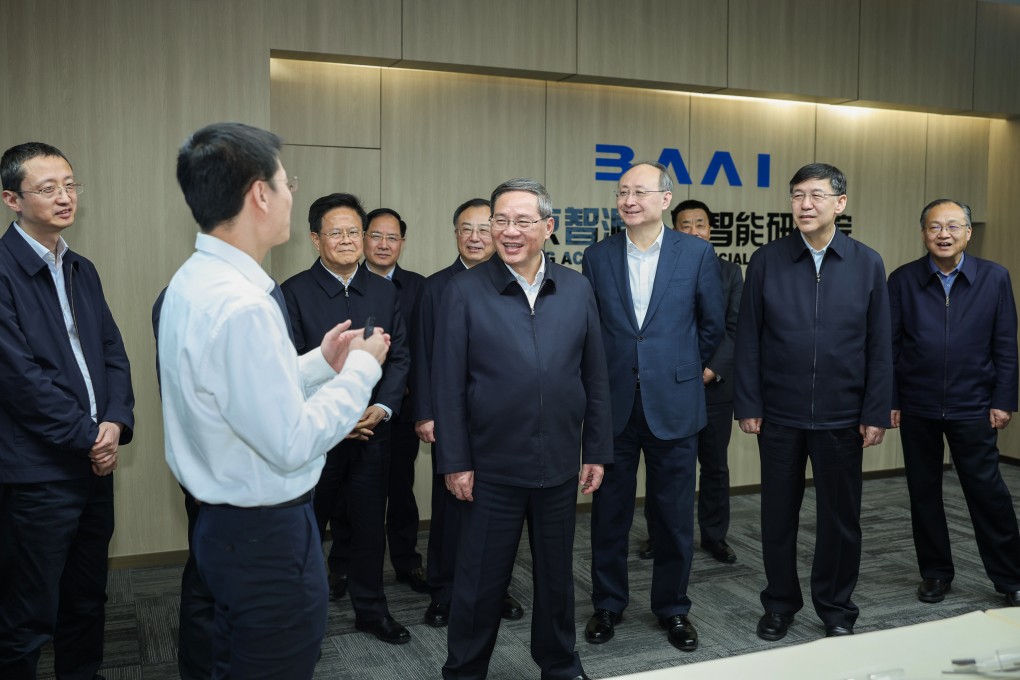As China plays catch-up in AI advancements, Premier Li vows more leeway to ‘overtake rivals’
- Declaration comes during inspection tour and as European Parliament approves new legal framework to get ahead of worrisome risks associated with artificial intelligence
- Li Qiang also calls for the expansion of AI applications under a ‘loosened up’ regulatory regime that analysts say would require changes to government policies

In his elevation of artificial intelligence (AI) as a key pillar underpinning China’s pursuit of long-term growth, Premier Li Qiang has vowed to cultivate a more tolerant “trial and error” culture while allowing ample room to explore different technical paths for the rapidly growing technology.
Li devoted his first field trip after the target-setting parliamentary meetings known as the “two sessions” to tech firms in the capital city of Beijing, where state media said he heard about the latest developments in the realms of AI, semiconductors and autonomous vehicles such as self-driving cars.
“While sticking to the bottom line of security, we must promote prudent, accommodative supervision and give new and emerging technologies sufficient space and room for trial and error,” the premier reportedly told cadres and business representatives from the capital city on Wednesday.
Although he did not elaborate on how exactly that will be done, the declaration came as the European Parliament on Wednesday approved a legal framework for curbing the risks of AI, and as similar legislation has received considerable attention in the United States.
We must strive to overtake rivals at the bend or by swerving into a new lane